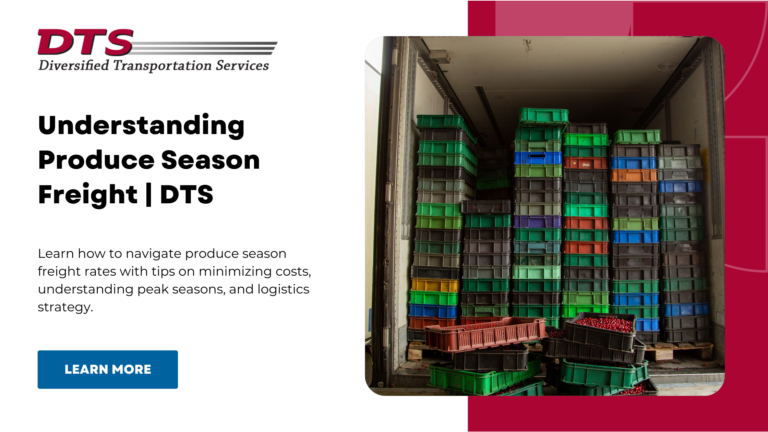
Navigating produce season freight rates can be frustrating for farmers, businesses dealing in perishable goods, and even companies that don’t deal in fresh produce. Demand for shipping services changes during this season, and prices change with it. However, if you prepare properly, you can find ways to mitigate the cost increases.
In this post, we’ll explore what produce season in truckload logistics is, when it takes place, and some tips to minimize produce season freight rates.
During the produce season, freight transportation picks up again after slowing down in January. That makes it a crucial time for the freight/truckload market.
The produce season falls between the “quiet season” (January - March) and the “peak season” (August - end of October).
Learn more about shipping seasons in the US.
During produce season, shipping activity increases due to the amount of fresh produce ready to collect and distribute. This includes newly harvested vegetables, fruits, and grains.
More businesses require freight shipping to transport produce far and wide, creating welcome opportunities for shipping companies with trucks ready to roll. Refrigerated trucks and vented vans are in particularly high demand to keep freshly harvested goods fresh during transportation.
It’s not just the demand for trucks that increases during produce season — freight rates also increase.
Produce season varies from state to state, depending on their growing seasons and their most common crops. But it generally starts at the earliest in southern states (where temperatures are highest) and continues north through the summer months. Knowing when major produce seasons are is vital to preparing for the increase in produce season freight pricing.
Here’s when five states have their peak produce season:
Produce season substantially affects full truckload (FTL) freight rates. The spike in shipping fresh fruits, vegetables, and grains from farms to market takes demand for trucks to another level. Availability goes down, and rates go up.
This spike in demand can cause countrywide disruptions and affect spot rates in and outside of different regions. Even sellers looking to ship non-produce goods will have to deal with higher prices. That’s why preparing for produce season in advance will help your company manage freight costs.
Here are a few tips to help you keep produce season freight rates down:
DTS is a shipping logistics company offering freight transportation services tailored to your unique needs. We can create the right solution at competitive rates to make sure your goods get where they need to be. To learn more, contact DTS today.
Whether you're a company looking to improve one facet of your supply chain, your entire supply chain, or simply looking for a transportation and logistics consultation, we can help.